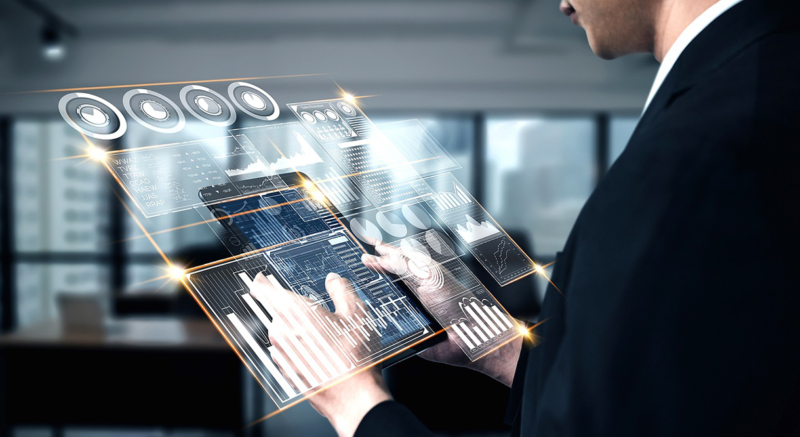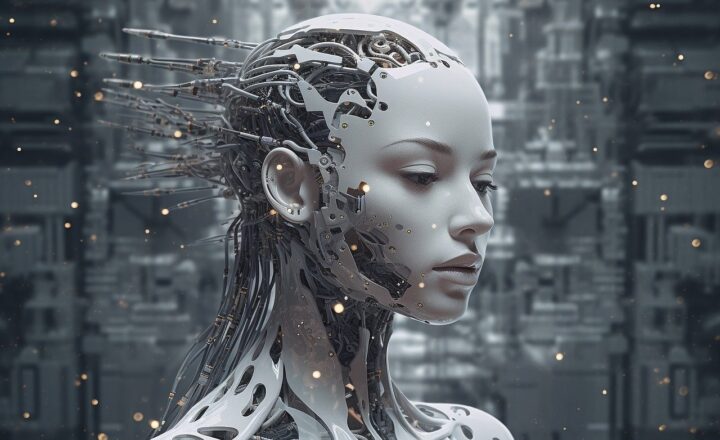
Artificial intelligence (AI) continues to evolve at a rapid pace, and by 2025, we expect to see a range of trends that will revolutionize various industries, transform our everyday lives, and shape the future of humanity. From healthcare and transportation to finance and education, AI is poised to become even more deeply integrated into the global economy. In this article, we’ll explore the top 10 AI trends that are expected to change the world by 2025.
1. AI-Powered Healthcare Diagnostics
One of the most impactful areas where AI is making a difference is in healthcare diagnostics. By 2025, AI-powered tools will be able to diagnose diseases with greater accuracy and speed than human doctors. From detecting cancer to predicting heart disease, AI will play a crucial role in early diagnosis, improving patient outcomes and reducing healthcare costs.
AI algorithms are already being used to analyze medical images, such as MRIs and X-rays, and provide faster, more accurate diagnoses. By 2025, we can expect AI to further enhance diagnostic capabilities through real-time data analysis and machine learning models trained on vast datasets.
2. Autonomous Vehicles and Smart Transport Systems
Autonomous vehicles are another area where AI is set to have a transformative impact. By 2025, self-driving cars, trucks, and delivery drones will be more common, leading to safer roads and reduced congestion. AI will power advanced navigation systems, enabling vehicles to make real-time decisions in complex traffic environments.
Beyond autonomous vehicles, AI will revolutionize smart transport systems, optimizing traffic flow and public transportation routes. Cities will become smarter as AI helps reduce emissions, increase efficiency, and improve overall mobility for residents.
3. AI-Driven Personalized Education
Education is going to see a major shift thanks to AI. By 2025, AI-driven personalized education platforms will tailor learning experiences to individual students based on their needs, learning styles, and progress. These platforms will adapt in real time, providing personalized feedback and content recommendations, which will result in improved learning outcomes.
AI will help break down traditional barriers to education, making high-quality learning accessible to more people around the world. Virtual AI tutors, learning assistants, and AI-powered grading systems will further transform the way we learn and teach.
4. AI in Finance: Predictive Analytics and Fraud Detection
In finance, AI will continue to reshape how businesses and consumers interact with money. Predictive analytics powered by AI will offer better insights into market trends and consumer behavior, allowing financial institutions to make more accurate decisions.
Moreover, AI’s ability to detect and prevent fraud will become even more sophisticated by 2025. Machine learning algorithms will analyze vast amounts of transaction data in real time, identifying patterns of fraud and protecting consumers from financial crime.
5. AI-Powered Cybersecurity
With cyberattacks on the rise, AI will become an essential tool in enhancing cybersecurity. By 2025, AI systems will be able to detect threats in real time, predict vulnerabilities, and respond to security breaches faster than any human could.
AI-powered cybersecurity tools will constantly learn from new data, improving their ability to prevent breaches and reduce the time it takes to identify and respond to attacks. As businesses and governments increasingly rely on digital infrastructure, AI will be vital in keeping data and networks secure.
6. AI in Creative Arts: Music, Art, and Content Creation
AI is already making waves in the creative industries, but by 2025, we’ll see even more AI-generated music, art, and written content. AI algorithms will be used to produce original compositions, paintings, and even entire books, transforming how we perceive and engage with creative works.
These AI-driven tools will not only augment human creativity but also democratize content creation by allowing people with limited technical skills to produce high-quality works. Expect to see more collaboration between humans and AI in the world of entertainment and arts.
7. AI-Enhanced Customer Experiences
By 2025, AI will have drastically improved the customer experience across multiple industries. Chatbots and virtual assistants will be able to provide more natural, human-like interactions, handling complex customer queries with ease. Businesses will use AI to personalize marketing efforts, offering consumers products and services tailored to their preferences.
AI-powered recommendation engines will continue to evolve, making online shopping, entertainment, and content consumption more intuitive and personalized than ever before.
8. AI in Manufacturing: Smart Factories
The manufacturing sector is set for a major AI transformation. By 2025, factories will be smarter, with AI-powered robotics and systems handling everything from assembly lines to quality control. AI will optimize production processes, reduce waste, and increase efficiency, helping businesses meet growing demand while reducing costs.
AI in manufacturing will also contribute to greater workplace safety, as intelligent machines will take on dangerous tasks previously performed by humans.
9. AI in Agriculture: Precision Farming
Agriculture is another industry that will see significant AI-driven advancements by 2025. AI-powered tools will enable farmers to use precision farming techniques, optimizing crop yields and resource usage. AI-driven drones and robots will monitor crops, detect diseases, and automate harvesting, leading to more efficient and sustainable farming practices.
This transformation will help address the growing global demand for food while minimizing environmental impact.
10. Ethical AI and Regulatory Frameworks
As AI becomes more ubiquitous, there will be increased focus on the ethical implications of its use. By 2025, we expect to see governments and organizations establish stronger regulatory frameworks to ensure that AI is used responsibly. Issues such as data privacy, algorithmic bias, and the impact of AI on jobs will be at the forefront of these discussions.
The development of ethical AI will involve greater transparency in AI decision-making processes and the implementation of safeguards to prevent misuse.
Conclusion
By 2025, AI will have fundamentally transformed the way we live, work, and interact with the world. From healthcare and education to finance and transportation, AI will be embedded in almost every aspect of society. While these advancements hold immense potential, they also raise important questions about ethics, privacy, and the future of work. It will be crucial for policymakers, businesses, and individuals to navigate this rapidly changing landscape thoughtfully, ensuring that AI is used to benefit all of humanity.






